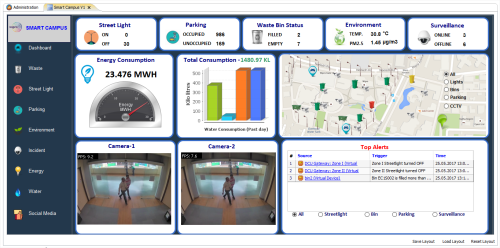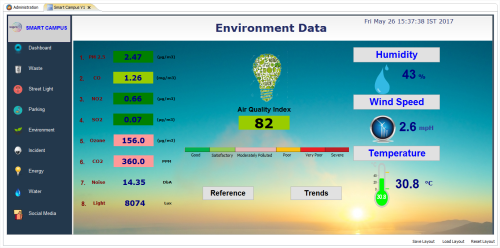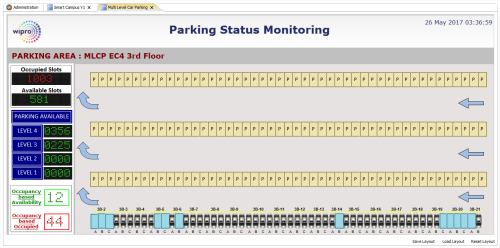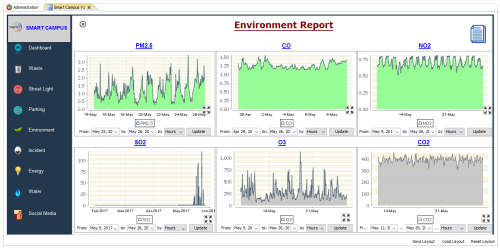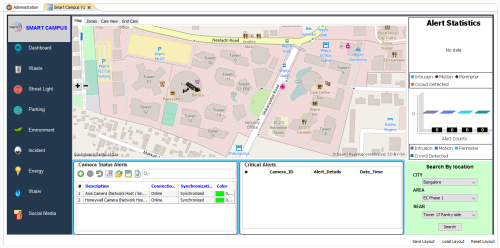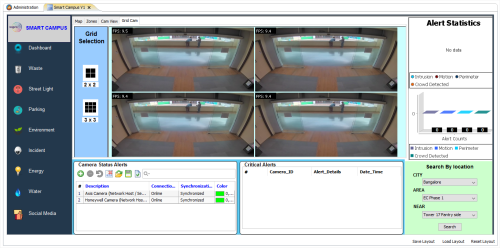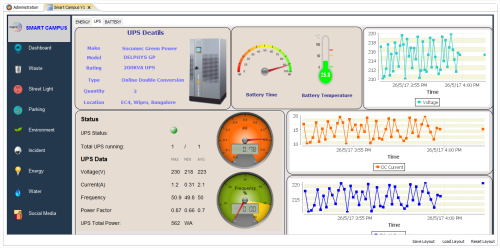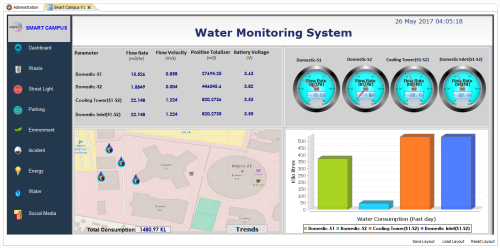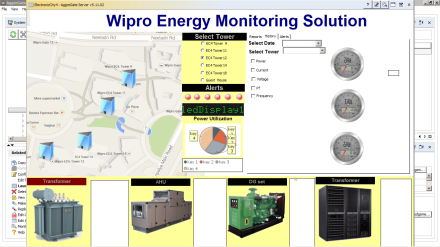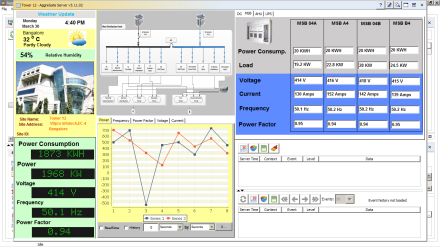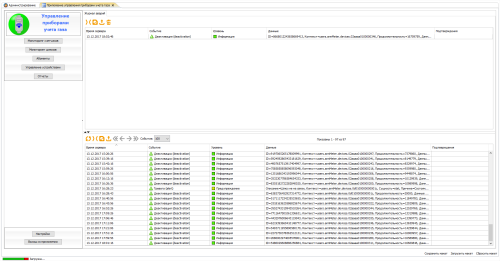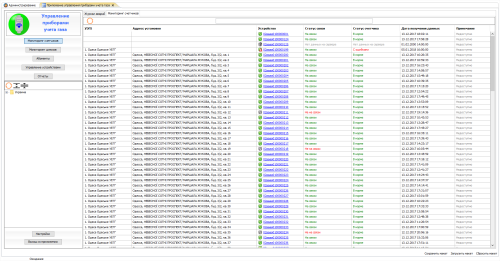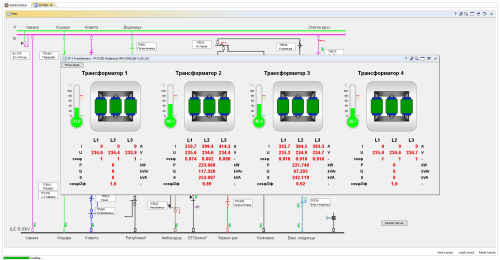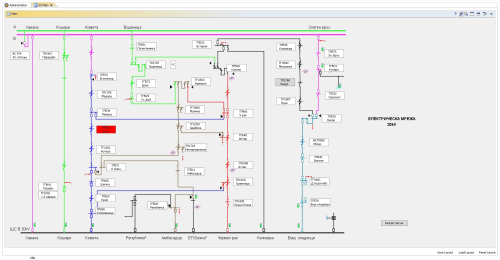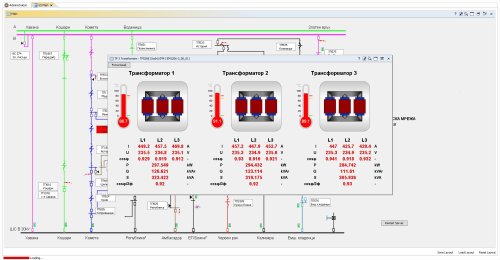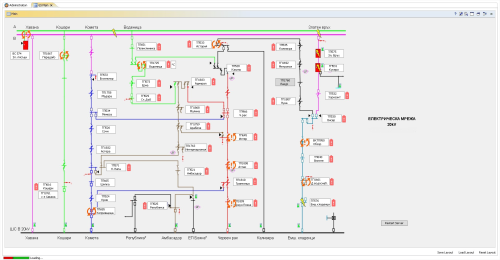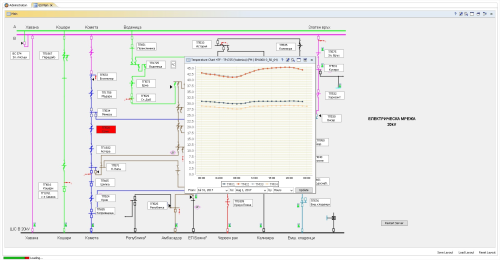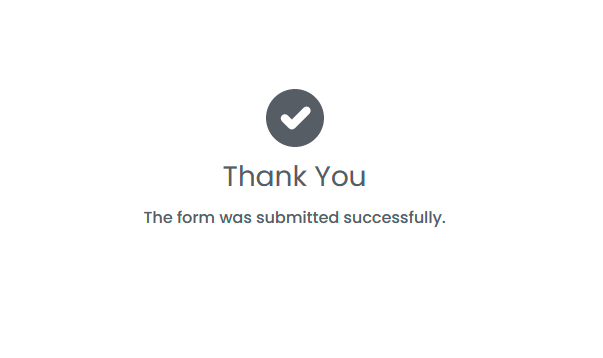Smart Metering
AggreGate can collect the consumption, diagnostic and status data from water, gas, heat, and electric meters and store this data in a structured database for billing, troubleshooting and analysis. AggreGate Platform plays a role of the Meter Data Management (MDM) software, but it also shares the collected data with other systems.
Implementing Automatic Meter Reading (AMR)
The AggreGate Platform's architecture allows setting up a centralized data logging for different meter types with minimal efforts:
| Meters that use standard communication protocols (Modbus, Meter-Bus, DLMS/COSEM, OPC, SNMP, etc.) are supported directly |
| Other meters can be connected through the hardware protocol converters (agents) of custom software drivers |
| Meter readings can be imported from the other AMR systems via web services (SOAP, HTTP and similar), external database connectivity (SQL) and other protocols |
| Readings are seamlessly stored in the server database |
| Flexible meter polling rules and customizable reading history storage are supported |
| Integrated alerting, reporting, charting, and deep data mining are enabled by the platform |
| Long-term correlation-based trending and trend prediction allow warning operators in advance if the growing consumption is going to cross the Service Level Agreement (SLA) threshold |
| Detailed peak usage analysis is available |
| Open-source APIs allow flexible integration with the billing systems and delivering information to the customers, suppliers and service providers |
| Customization and rebranding options for the meter manufacturers |
Remote data collection saves the expenses of periodic trips to each physical location for reading a meter.
Another advantage is that billing can be based on the near real-time consumption rather than on estimates based on the previous or predicted consumption.
Analysis of the logged meter readings can help optimize the consumption and production of water, gas and electricity.
Counter Value Storage and Analysis
Values exposed by automatic meters are normally counter-type metrics representing a number of consumed units (cubic meters, kilowatt hours, etc.) since the device installation or startup. Converting those values into the average consumption rates suitable for charting, reporting and billing is a complicated and tricky task. AggreGate Platform solves the counter-to-rate conversion problem by employing an out-of-the-box statistics module. This module offers:
| Automatic calculation of minutely/hourly/daily/weekly/monthly/yearly average maximum and minimum consumption rates | Internal support for the counter overflows, negative change rates and counters which are reset upon reading |
| Configurable precision loss for the older statistical samples | Support for the gauge-type metrics, i.e. device-provided "spot averages" |
| Support for storing a configurable amount of "raw" readings in a classic relational database | Statistical data storage in a Round-Robin Database (RRD) for the small non-changing archive size and extremely fast access |
| Flexible charting, trending and reporting over the statistical meter values | User-definable dictionaries for the custom enrichment of meterings |
| Flexible data export to a large number of formats (CSV, XLS, XML, PDF, and more) | Aggregated metrics calculated by a formula involving several "raw" meter values |
Advanced Metering Infrastructure
The concept of AMI presumes managing meters in addition to monitoring them. It enables the bidirectional data exchange and collection of additional data. AggreGate will allow intercommunication with the smart meters for:
- Remote configuration of meters, including batch configuration
- Real-time meter operations (e.g., remote shutoff)
- Receiving and processing the device-generated alerts, such as leak detection, reverse flow, low battery or tamper
- Collecting the statistics for the time/rate of use
Meter Network Scalability
A single AggreGate Server can directly monitor and manage up to 100 000 meters or around 10 000 simultaneously connected meters. There is a practical limitation caused by the limited performance of IP stack in the underlying operating systems. For further scaling, one of the following technologies should be used:
- Meters can be connected via hardware concentrators, such as industrial PCs or programmable controllers. If an average concentrator hosts 100 meters, a single AggreGate server will service millions of meters, although requiring a high-performance hardware.
- Any number of independent servers can be joined into a distributed installation providing virtually unlimited scalability. A distributed installation can comprise one or more "master" servers which perform periodic polling of the "field" servers in order to build overall reports. These master servers can also offer dashboards aggregating KPIs collected from the secondary servers in a real-time mode.
Smart Campus
Smart Cities
Wipro
India
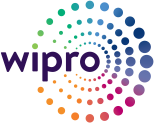
Building Automation
Environment monitoring, street light management, waste management, MLCP and open area parking solution, social media integration, SOP and alerts, energy monitoring system, water quality and consumption management, incident management system for a large corporate campus.
LPWAN-Based Smart Metering
Managed Service Providers
Novitek
Ukraine
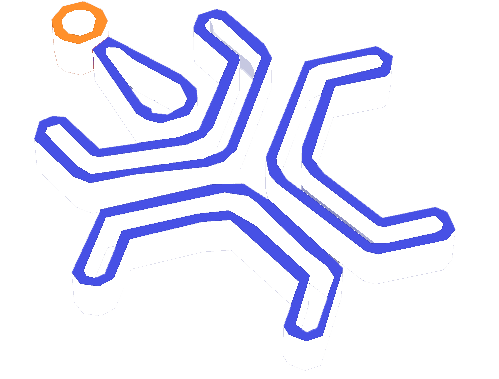
Automatic Meter Reading
AggreGate-based LPWAN network and application servers for the custom-made base stations. A derived smart metering system for the gas, electricity, water, heating, as well as physical sensors of humidity, vibration, light intensity, etc.
Rebranding and OEM Contracts
AggreGate is designed to be rebranded and redistributed by the smart meter manufacturers under an OEM agreement. The system can be easily customized for the specific market's requirements. A branded package will inherit your custom name, copyright, logos, icons, website links, and other corporate identity elements.
Our unique value proposition includes:
- Open-source driver development kit for bridging any existing or newly designed meter to AggreGate
- Open-source plugin SDK for easy development of the custom meter data analytics and bridging your custom AMR solution to the external systems (e.g., billing systems)
- A wide range of professional services for quickly bringing your new AMR solution to the market
- Flexible OEM/ODM licensing policy
